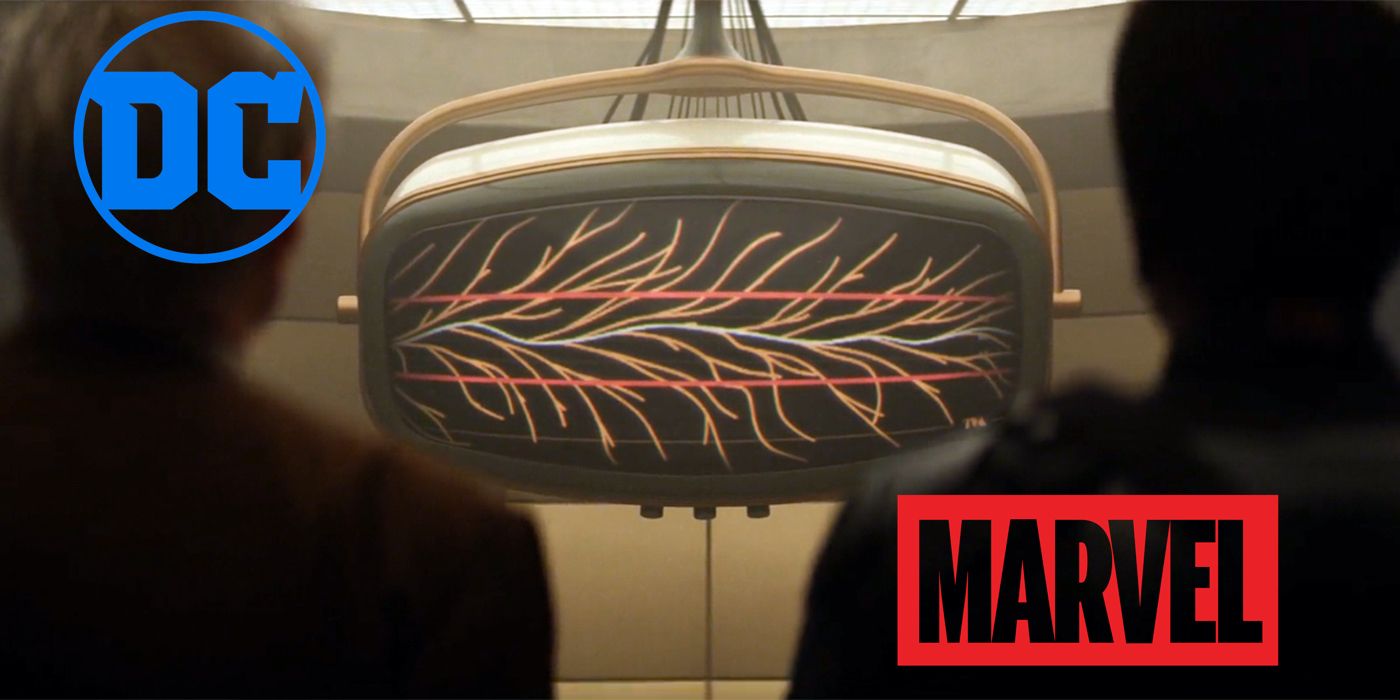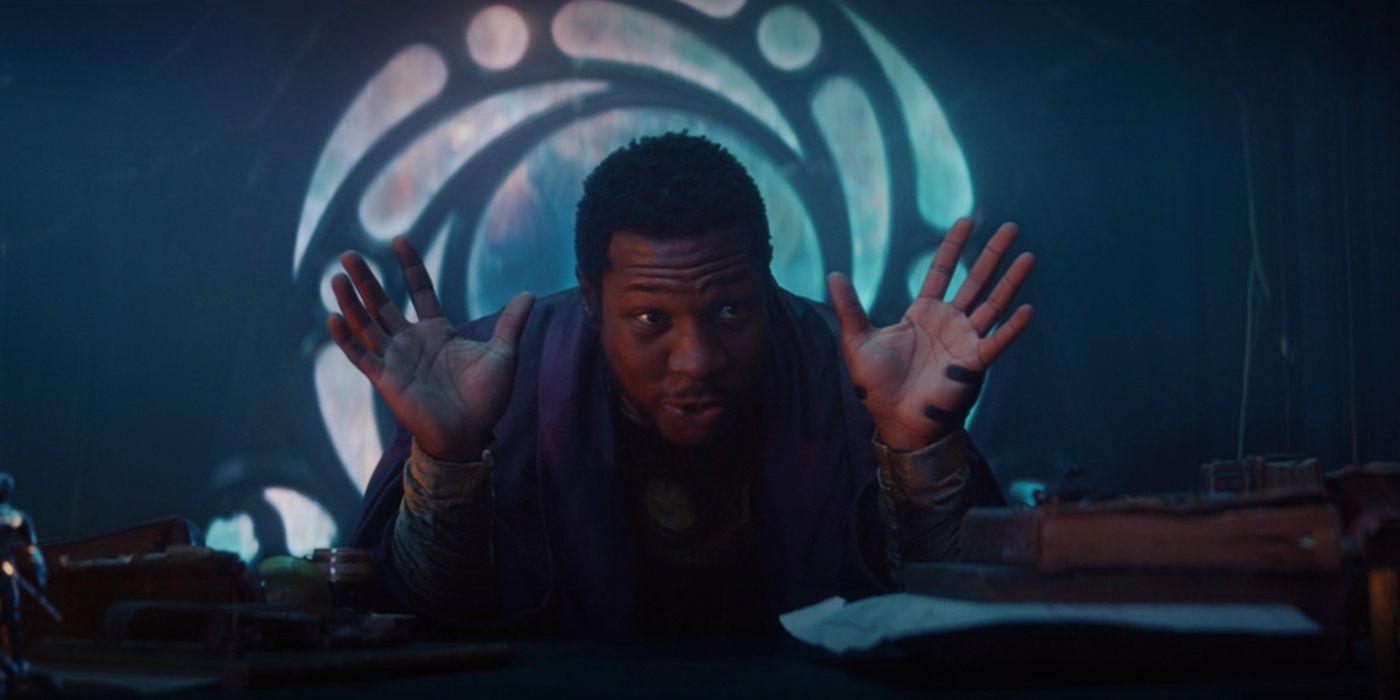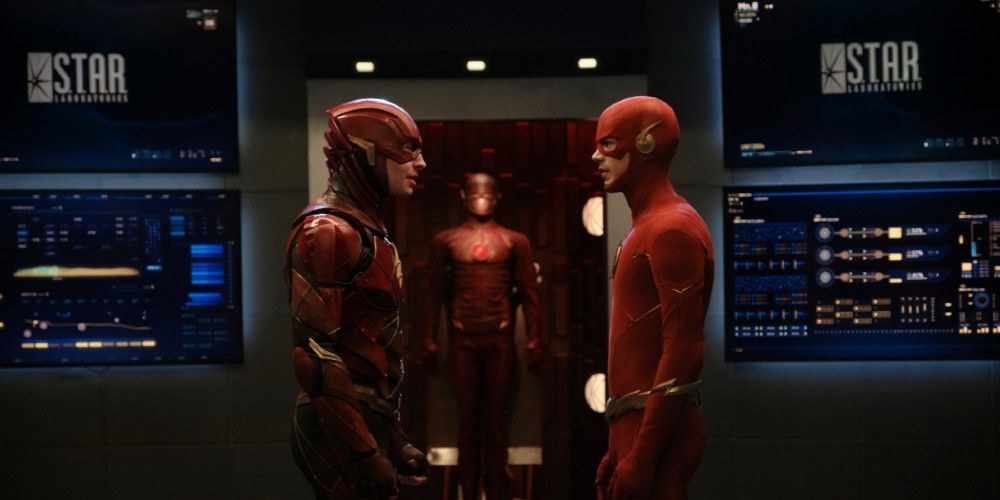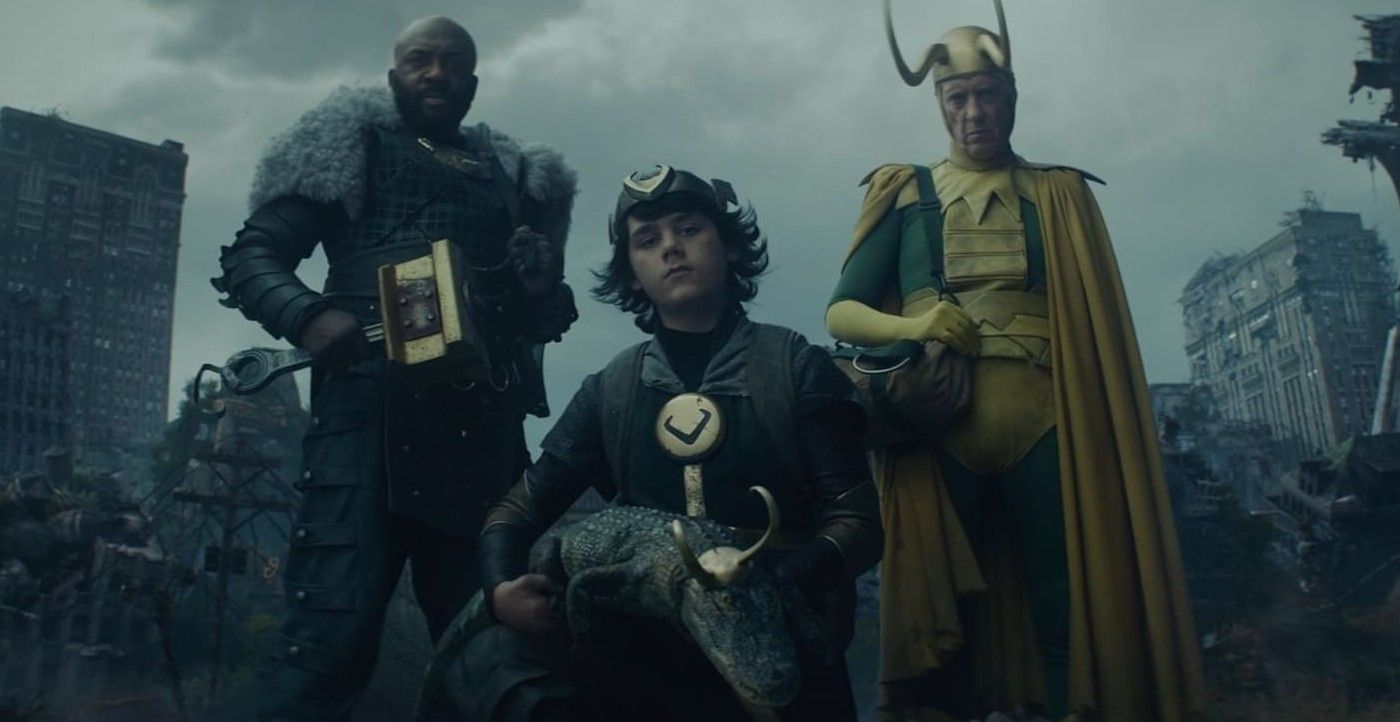
There has been a lot of excitement around the MCU officially introducing the multiverse. Fans were excited to see how the MCU would go forward with it, and even in its relatively early stages, the MCU multiverse looks promising. The multiverse will exist in both the official MCU television shows and movies set in the MCU.
The multiverse has been hinted at for while--in Spider-Man: Far From Home, for example, Quentin Beck claims to come from another version of Earth. This is a lie, but the possibility is not dismissed. The concept of the multiverse is fully brought to fruition in season one of Disney Plus' Loki. Loki introduces the concept of variants, different versions of people from different timelines where different decisions were made. These variants can look similar to the version of the character fans are familiar with, or be a different age, race, gender, or species. Multiple variants of Loki were introduced during the first season, and variants of new character He Who Remains were discussed, one of which is known to be villain Kang the Conqueror.
RELATED: Kevin Feige Reports That Marvel Is Setting Up The Rules Of The Multiverse
At the end of Loki season one, the timeline as it is known branched to a point of no return. This means there could be hundreds of different universes and therefore hundreds of variants of each character, and the possibility of crossing between timelines and universes. Casting for Spider-Man: No Way Home suggests crossover within the multiverse. Villains from previous Spider-Man continuities have been confirmed as part of the cast, including Jamie Foxx as Electro from 2014's The Amazing Spider-Man 2 and Alfred Molina as Doc Ock from 2004's Spider-Man 2. Of course, the title alone of Doctor Strange and the Multiverse of Madness, the upcoming second Doctor Strange film, promises further exploration of the multiverse and what it means.

Similarly, it looks like the DCEU will have its world opened up further with the introduction of the Flashpoint paradox storyline in the upcoming movie, The Flash. In the comics, Flashpoint is a storyline in which Barry Allen changes the past in order to stop the Reverse-Flash from murdering his mother when Barry was a child. This means that not only would he grow up with his mother, but his father, who was charged for his mother's death, would not be incarcerated. However, this one change causes massive changes to the DC universe.
Alongside Ben Affleck's Batman, The Flash has cast Michael Keaton, who played Batman in Batman (1989) and Batman Returns (1992). Keaton will be playing an older version of Batman from an alternate universe. The full plot of The Flash remains unknown, but in the comics, while Barry ultimately accepts the price of changing the past is too great and undoes what he did, things are still not "put back" exactly as they were. While not exactly the same as what Marvel is doing with the MCU, Flashpoint could allow for more opportunities for storylines and characters within the DCEU.

Crossover casting is one benefit of a multiverse. On top of those listed above, the DCEU's Flash, Ezra Miller, appeared as The Flash in the Arrow-verse's Crisis on Infinite Earths special, meeting TV's Flash, played by Grant Gustin. While it is yet unknown if Gustin will do the same in The Flash movie, even the possibility of that happening is only due to different universes and timelines opening up. With the popularity of superhero media over the years, and with what casting has already occurred within the DCEU and MCU, there's no doubt that studios will take as much advantage of these possibilities as they can.
This is not the only way a multiverse could be useful to studios in terms of casting. If studios encounter real-life problems with an actor, whether behind the scenes drama, scheduling conflicts, or illness and injury, they have a way to explain recasting a character, even temporarily. The change can be explained by introducing the new version as a variation of the original character, or as existing due to changes in the timeline. This should not be overused, and recasting should only be done when absolutely necessary so backlash can be avoided, but it does exist as a possibility.

Of course, as was seen in Loki, new versions of a character can also exist alongside the ones that audiences are already familiar with. Variants and multiple universes or timelines can help studios explore more diversity in casting. It could be a fun way to introduce genderswapped characters, or characters of different ethnicities, ages, and class backgrounds. Marvel and DC can find new ways to play with characters and give the audience different ways of looking at them. This could also be a way to explore different relationships not only between two variations of a character but between them and those around them.
Marvel and DC comics have been running for decades, so they have become known for changing, rebooting, and introducing different universes and new continuities. The existence of the multiverse can allow more comic book storylines to be introduced in film and television form without erasing or directly contradicting pre-existing storylines. There are years and years of storyline options out there, and studios can take so many different directions. Additionally, this could give studios reasons to experiment with projects with "one-off" storylines without major impact on the main DCEU/MCU. It can be explained away as existing in a different timeline or universe.
Overall, it's understandable that the MCU made the decision to explore the multiverse. It makes sense that DC followed suit in a sense with the choice to use a Flashpoint-inspired storyline in The Flash. There are so many benefits for studios, both practical and creative. It will be exciting to see where these cinematic universes go from here.

